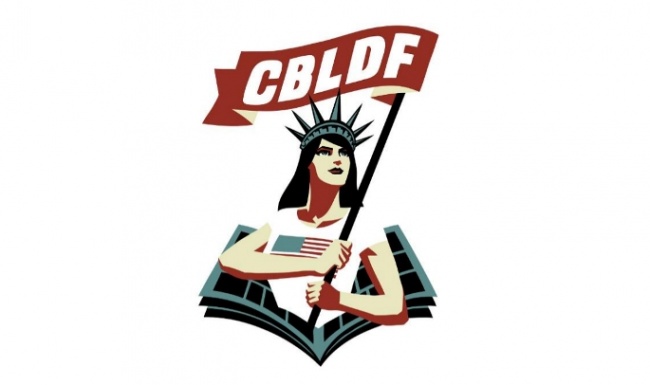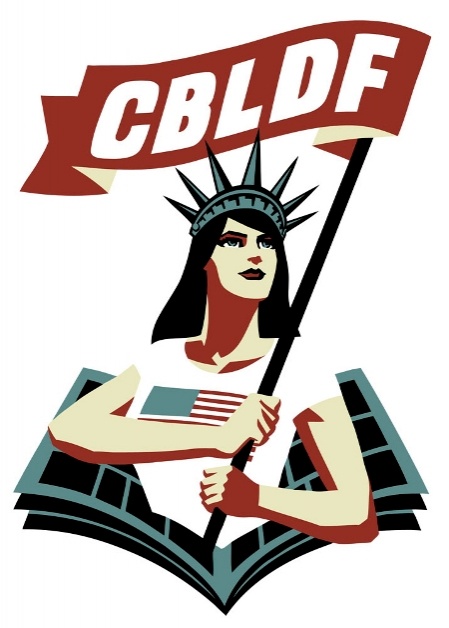This advisory is a general discussion of the law and how it may impact comics sellers in California. It is not presented as legal advice. Please consult with your lawyer if you have concerns specific to your business.
The Bill: CA AB 1570 is an amendment to an existing law that broadens the state’s oversight of how autographed collectibles are sold. The amended law requires any “dealer” selling or offering to sell a “collectible” in or from California must provide a certificate of authenticity to the consumer. The law defines a collectible as any autographed good. The law goes into effect January 1, 2017.
Frequently Asked Questions
1. Q: What does the law apply to?
A: The bill governs the sale of “collectibles,” which is defined as any autographed item sold to a consumer for $5 or more that the seller has described as being autographed. Unsigned items are not addressed in this bill. An item may only be called a “collectible” if it is signed by the personality in his or her own hand.
2. Q: Who does the law apply to?
A: The amendment applies to any “dealer,” which is defined as:
- A person principally in the business of selling or offering for sale “collectibles.”
- A person who holds him or herself out to have a specific knowledge or skill about collectibles (or employs someone who does) or to whom such knowledge can be imputed based on employment. This includes auctioneers who sell collectibles at public auctions.
3. Q: Is “principally” defined in the law? How does this bill apply to comic book stores?
A: Principally is not defined. However, according to a letter of clarification sent by bill sponsor Assemblywoman Ling Ling Chang, the law “does not apply to booksellers,” because they “are not principally in the business of selling signed collectibles any more than a convenience store. It is true that some booksellers’ inventory include signed merchandise, including books signed by authors during special signing events. However, it is clear, even taking those items into consideration, a bookstore would not meet the bar of being ‘principally’ in the business of selling signed collectibles.”
Based on Chang’s view expressed in her letter that the law does not apply to bookstores, it is unlikely to apply to comic book stores, however the text of the bill does not specifically exclude them (or bookstores).
4. Q: What does the law require?
A: The law requires that a “dealer” must furnish a certificate of authenticity to the consumer at the time of sale. This certificate, discussed further below, includes specifications that relate to record-keeping and provenance. A consumer may sue for damages for failure to provide a certificate of authenticity or providing a false certificate. The consumer can recover 10 times actual damages, plus court costs, reasonable attorney’s fees, interest, and expert witness fees, if applicable. The court, in its discretion, may award additional damages based on the egregiousness of the seller’s conduct.
5. Q: Is anyone explicitly excluded from the legislation?
A: There are three categories that are specifically excluded from being defined as dealers:
- Pawnbrokers
- The individual who signs the memorabilia
- Websites not principally in the businesses of selling collectibles and whose proprietors don’t hold themselves out to as having special knowledge or skill about collectibles.
6. Q: Does the law apply to comic book creators?
A: Unlikely. The law specifically excludes “the personality who signs the memorabilia.” Comic book creators selling their own publications, prints, and artwork at conventions and signing those items are excluded from the law’s provisions.
7. Q: Does the law apply to exhibitors at comic book conventions?
A: This depends on what they sell. If the vendor is not selling autographed memorabilia, if they are a retailer or publisher hosting author signings, or if their product mix is not “principally” comprised of signed items, the bill likely does not apply. However, vendors whose product mix consists principally of autographed items would have to comply with the law’s provisions.
8. Q: Does this law apply to mail order or internet businesses?
A: This depends on what they sell. If the vendor is a California business or sells to customers in California and their business is not “principally” the sale of autographed items, the bill does not apply. However, businesses whose principal product mix consists of autographed items would have to comply with the law’s provisions.
9. Q: What are the law’s Certificate of Authenticity provisions?
A: The law requires businesses “principally” engaged in the sale of “collectibles,” which are defined as autographed goods, to provide a certificate of authenticity to the consumer at the time of sale. The bill dictates:
The certificate of authenticity must be in writing, must be signed by the dealer or his or her authorized agent, and must specify the date of sale. The certificate of authenticity must be in at least 10-point boldface type and shall contain the dealer’s true legal name and street address. The dealer must retain a copy of the certificate of authenticity for at least seven years. Each certificate of authenticity shall do all of the following:
- Describe the collectible and specify the name of the personality who autographed it.
- Either specify the purchase price and date of sale or be accompanied by a separate invoice setting forth that information.
- Contain an express warranty, which shall be conclusively presumed to be part of the bargain, of the authenticity of the collectible. This warranty shall not be negated or limited by reason of the lack of words such as “warranty” or “guarantee” or because the dealer does not have a specific intent or authorization to make the warranty or because any statement relevant to the collectible is or purports to be, or is capable of being, merely the dealer’s opinion.
- Specify whether the collectible is offered as one of a limited edition and, if so, specify (A) how the collectible and edition are numbered and (B) the size of the edition and the size of any prior or anticipated future edition, if known. If the size of the edition and the size of any prior or anticipated future edition is not known, the certificate shall contain an explicit statement to that effect.
- Indicate whether the dealer is surety bonded or is otherwise insured to protect the consumer against errors and omissions of the dealer and, if bonded or insured, provide proof thereof.
- Indicate the last four digits of the dealer’s resale certificate number from the State Board of Equalization.
- Indicate whether the item was autographed in the presence of the dealer and specify the date and location of, and the name of a witness to, the autograph signing.
- Indicate whether the item was obtained or purchased from a third party. If so, indicate the name and address of this third party.
- Include an identifying serial number that corresponds to an identifying number printed on the collectible item, if any. The serial number shall also be printed on the sales receipt. If the sales receipt is printed electronically, the dealer may manually write the serial number on the receipt.
10. Q: What are the law’s display provisions?
A: The law dictates that dealers must display conspicuously and in close proximity to collectible merchandise a sign that reads:
“SALE OF AUTOGRAPHED MEMORABILIA: AS REQUIRED BY LAW, A DEALER WHO SELLS TO A CONSUMER ANY MEMORABILIA DESCRIBED AS BEING AUTOGRAPHED MUST PROVIDE A WRITTEN CERTIFICATE OF AUTHENTICITY AT THE TIME OF SALE. THIS DEALER MAY BE SURETY BONDED OR OTHERWISE INSURED TO ENSURE THE AUTHENTICITY OF ANY COLLECTIBLE SOLD BY THIS DEALER.”
11. Q: What are the penalties for non-compliance or other violations?
A: According to the law:
Any consumer injured by the failure of a dealer to provide a certificate of authenticity containing the information required by this section, or by a dealer’s furnishing of a certificate of authenticity that is false, shall be entitled to recover, in addition to actual damages, a civil penalty in an amount equal to 10 times actual damages, plus court costs, reasonable attorney’s fees, interest, and expert witness fees, if applicable, incurred by the consumer in the action. The court, in its discretion, may award additional damages based on the egregiousness of the dealer’s conduct. The remedy specified in this section is in addition to, and not in lieu of, any other remedy that may be provided by law.
12. Q: What obligations do comic book convention organizers have under this law?
A: Under this law a “promoter” is anyone who arranges, holds, organizes, or presents a trade show featuring collectibles, autograph signings, or both.
If a promoter organizes a show that features collectibles and autograph signings, he or she must send written notification about the law to all dealers (as defined above) who purchase or rent space and what the promoter will do if the law is violated, including the fact that law enforcement officials will be contacted when the law is violated. The following language shall be included in each notice:
“As a vendor at this collectibles trade show, you are a professional representative of this hobby. As a result, you will be required to follow the laws of this state, including laws regarding the sale and display of collectibles, as defined in Section 1739.7 of the Civil Code, forged and counterfeit collectibles and autographs, and mint and limited edition collectibles. If you do not obey the laws, you may be evicted from this trade show, be reported to law enforcement, and be held liable for a civil penalty of 10 times the amount of damages.”
There is a second obligation for events “primarily featuring sales of collectibles or other memorabilia,” but it not clear if it is the responsibility of the promoter or the dealer. The law bars any dealer from displaying or selling collectibles – which are defined as signed items – at any trade show or similar event “primarily featuring sales of collectibles or other memorabilia” that charges for admission ticket sales unless “at each onsite location where admission tickets are sold, there is prominently displayed a specimen example of a certificate of authenticity.” The term “other memorabilia” is not defined in the law.
The law does not say if it is the obligation of the promoter or dealer required to display an example certificate of authenticity at every location where admission tickets are sold.
13. Q: What is the status of the law?
A: The amendment has been signed into law and goes into effect on January 1, 2017. Assemblywoman Chang’s office has issued a letter clarifying her intent with regard to booksellers. They are also seeking formal guidance from legislative counsel.
If you are a California business with concerns about the law, please voice them to your state representative and senator. Similarly, if you are business that sells to customers in California, you may want to urge them to do so.
CBLDF will continue to monitor the law’s progress, and we will remain in contact with the sponsor. If you have concerns you would like to make us aware of, please don’t hesitate to contact our Executive Director Charles Brownstein at charles.brownstein@cbldf.org.




